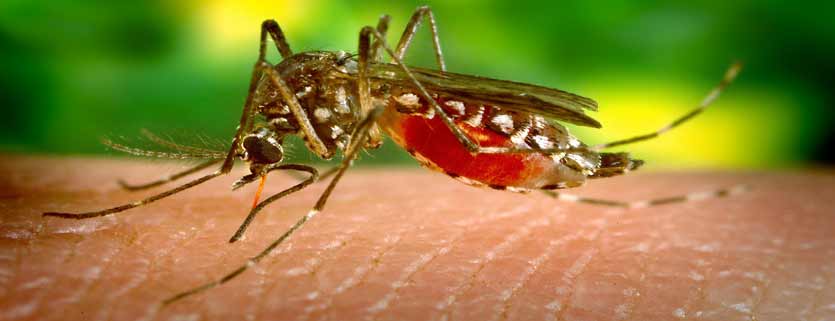How free shall trade ever be
/0 Comments/in Long Articles/by Rudolf HuberIn nature, it often happens that two organisms form a mutually beneficial, stable relationship with each other. Its called a symbiosis. Both organisms have an interest in the relationship.
A very iconic example is the honeybee and flowers. The flowers need the bee for reproduction, the bees get food. Another example is the ant with the plant louse. The louse gets protection, and the ant gets treats.
Sometimes, those relationships are detrimental to one organism. In this case, the symbiosis has either turned parasitic or it was parasitic, to begin with.
Think of mosquitos and mammals. It’s hard to think of an advantage that the sting of a mosquito confers to us. But parasitism does not only exist between organisms. It exists between all structures and organizations.
Let’s be open about it. The international community understands itself as some sort of giant, symbiotic relationship. We are all buddies now.
Especially so when it comes to the hugs-and-kisses topic of free trade.
Free trade between countries is supposed to allow everyone to concentrate on what they do best. One country is good at producing oranges as its climate is tropical. The other at producing timber as they are in moe boreal climates. That’s how it worked in ancient times and there is nothing wrong with that.
Today, things are not quite that romantic anymore.
Today, countries produce consumer goods. They are pretty indistinguishable from each other. So, the only thing that differentiates producers of anything today is the cost of production.
This means, in a race to the bottom all production of anything has moved into countries that have offered them lower costs.
Now, it’s not the climate in most cases that determine the cost structure. Most of the time it comes down to things like labor cost and the cost of compliance.
Let me explain.
To do anything in any country, one needs to follow applicable rules and regulations. The extent and severity of those rules and regulations often make or break a project.
An example: mining certain substances requires those who want to do so to follow a whole Smorgas Bordet of rules. You can’t waste the environment for starters. In any developed country, you will also have to pay an army of consultants and other paper pushers to keep the long-tail happy.
So, whats the long tail?
Every project in a developed country attracts a lot of activists that pretend they have nothing but the best interest of others in mind. To make sure, they need to produce a study and you need to pay them if you want your project to go ahead. Its a very modern form of blackmail and in a developed economy, that’s a very potent way to make some extra money on the side.
Of course, it increases CAPEX of the project as well plus its a very potent lengthened of the timeline. As time is money, even more cost.
What’s the solution?
You go to a country that does not care quite that much about all those costly things. A country that is happy to quicken things by clipping the long tail or doing away with it altogether.
This means, production of just about anything moves to the place of lowest cost. And those lowest costs are only possible by doing what no developed country would allow it to do. Its a rape of the environment and often also of the local population.
Then the stuff those projects produce gets imported into the destination country. Of course, at lower prices than locally produced stuff. And with the lower price, it carries a badge of destruction and potentially misery in another part of the world. In a sense, its a subsidy for those behaving badly.
In theory, specialization should work out to our mutual benefit. And competition should awaken the animal spirits in us to bring out the best.
As in biology, reality is much messier. Some free trade relationships are more symbiotic in nature, others are much more parasitic. Or have turned parasitic in time.
The COVID-19 epidemic did not turn the relationship between China and the developed world parasitic. The relationship had turned so many years ago. But the current crisis makes the fundamental nature of the relationship plain for everyone to see.
Many will say now that this is a mischaracterization. The developed world benefits from Chinas propensity to produce things cheaply and efficiently just as much as China benefits from selling stuff to the developed world. As I said before, things are rarely black and white.
But no matter what you use as a yardstick to measure the relationship, the exploitation of the capability to destroy the environment and social structures will remain.
In a sense, the developed world has relocated its pollution into China. In this sense, we might want to consider the developed world as the true parasite.
What does free trade come down to then?
Either the more developed market economy consciously allows the weaker economy to be parasitic to suckle it to strength. In this case, the stronger makes an investment in the weaker one to make it stronger.
This is done to suckle an ally to strength. It is a political decision – never a cheap one. But in a regional context it may make sense. It makes sense for the US to allow Mexico some access to its market to build a relationship. It makes sense for more developed European countries to help the poorer ones.
Some will say that building up other economies builds up new markets. That’s true but it also builds up new competitors. That’s most of the time a zero-sum game at best. Most of the time its way worse for the stronger economy.
Those suckling relationships must have an expiry date. They rarely have but they should have and transform into number two.
A trade partnership between equals or economies that are roughly similar in structure and style.
This means that things such as
- labor protection;
- environmental protection;
and other should be roughly similar.
It cannot be one side getting suckled to strength while the other starts to decompose. In a sense, that’s not in anyone’s interest. Not even in the parasites. But as we know, many parasites kill their host and move on.
Like locusts do.
But there is a fix. More on that next week.














Leave a Reply
Want to join the discussion?Feel free to contribute!